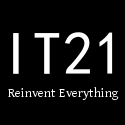The Surge of Student-Driven Encyclopedias: Changing Discovering Landscapes
In the ever-evolving world of education, where information flows abundantly and access to knowledge is just a click away, student-driven encyclopedias are becoming a vibrant tool in the learning process.

These systems not just offer pupils with a repository of info but additionally encourage them to add, modify, and curate content, cultivating a joint and interactive discovering environment.
As instructional standards change in the direction of even more participatory and inclusive versions, the principle of student-driven encyclopedias symbolizes this makeover. These platforms equip trainees to become active individuals in knowledge creation, linking the space between typical book learning and contemporary digital resources.
The Concept of Student-Driven Encyclopedias
Student-driven encyclopedias are digital platforms where trainees collectively gather, confirm, and distribute details on a large variety of topics. Unlike conventional encyclopedias, which are often composed by experts, these systems leverage the collective efforts of pupils to develop an extensive body of expertise.

At their core, student-driven encyclopedias are made to cultivate important thinking, research skills, and digital proficiency among trainees. By taking part in the procedure of content production, students learn to browse and examine details seriously, skills that are important in today’s information-rich society.
In addition, these systems serve as a space for pupils to discover their interests and share their knowledge. This autonomous approach to knowledge development guarantees that a varied variety of point of views and voices are represented, enriching the discovering experience for all participants.
- Trainees obtain hands-on experience in study and content creation.
- Motivates collaboration and peer interaction.
- Promotes a deeper understanding of topic.
- Fosters inclusivity and diversity in understanding depiction.
Fundamentally, student-driven encyclopedias change students from passive recipients of details right into active factors, instilling a feeling of ownership and obligation in their instructional trip.
Benefits of Student-Driven Encyclopedias
Among the primary benefits of student-driven encyclopedias is the advancement of crucial 21st-century abilities. As students take part in the procedure of web content development, they refine their important thinking, digital proficiency, and interaction abilities, all of which are vital in today’s interconnected world.
Furthermore, these platforms urge a collective discovering atmosphere, where pupils can work together to validate info, argument various viewpoints, and co-edit articles. This peer-to-peer communication not only boosts finding out outcomes however likewise fosters a sense of area and mutual respect amongst students.
In addition, student-driven encyclopedias use a system for showcasing trainee job. As students add to the encyclopedia, they develop a portfolio of their research and writing, which can be important for further academic and expert searches.
Challenges and Limitations

Despite the many advantages, student-driven encyclopedias likewise deal with particular obstacles. Guaranteeing the accuracy and dependability of information is vital, as these platforms depend on contributions from pupils that may not yet possess expert-level expertise.
- Maintaining material top quality and precision.
- Supplying appropriate guidance and assistance.
- Making sure equitable access and inclusivity.
To mitigate these challenges, lots of student-driven encyclopedias apply a system of checks and equilibriums, where web content is assessed by educators or professionals prior to magazine. This makes sure that the details presented is both exact and trustworthy, maintaining the integrity of the system.
The Future of Student-Driven Encyclopedias
As innovation continues to development and the landscape of education evolves, the capacity for student-driven encyclopedias is huge. These platforms have the ability to not only complement standard instructional sources however also redefine the way understanding is obtained and shared.
In the future, we could see student-driven encyclopedias incorporating advanced technologies such as expert system and machine learning to enhance content curation and personalization. Furthermore, they might broaden beyond textual info to include multimedia web content, supplying a much more immersive q&a qammunity for students platform understanding experience.
Equipping the Future Generation
Student-driven encyclopedias hold the assurance of equipping the future generation of learners. By putting students at the helm of knowledge production, these platforms encourage lifelong discovering, curiosity, and intellectual independence.
Finally, as academic systems remain to introduce, student-driven encyclopedias stand as a testament to the power of cooperation and the importance of trainee firm in the learning procedure. By embracing these platforms, we unlock to an extra comprehensive, appealing, and dynamic educational experience for all.
